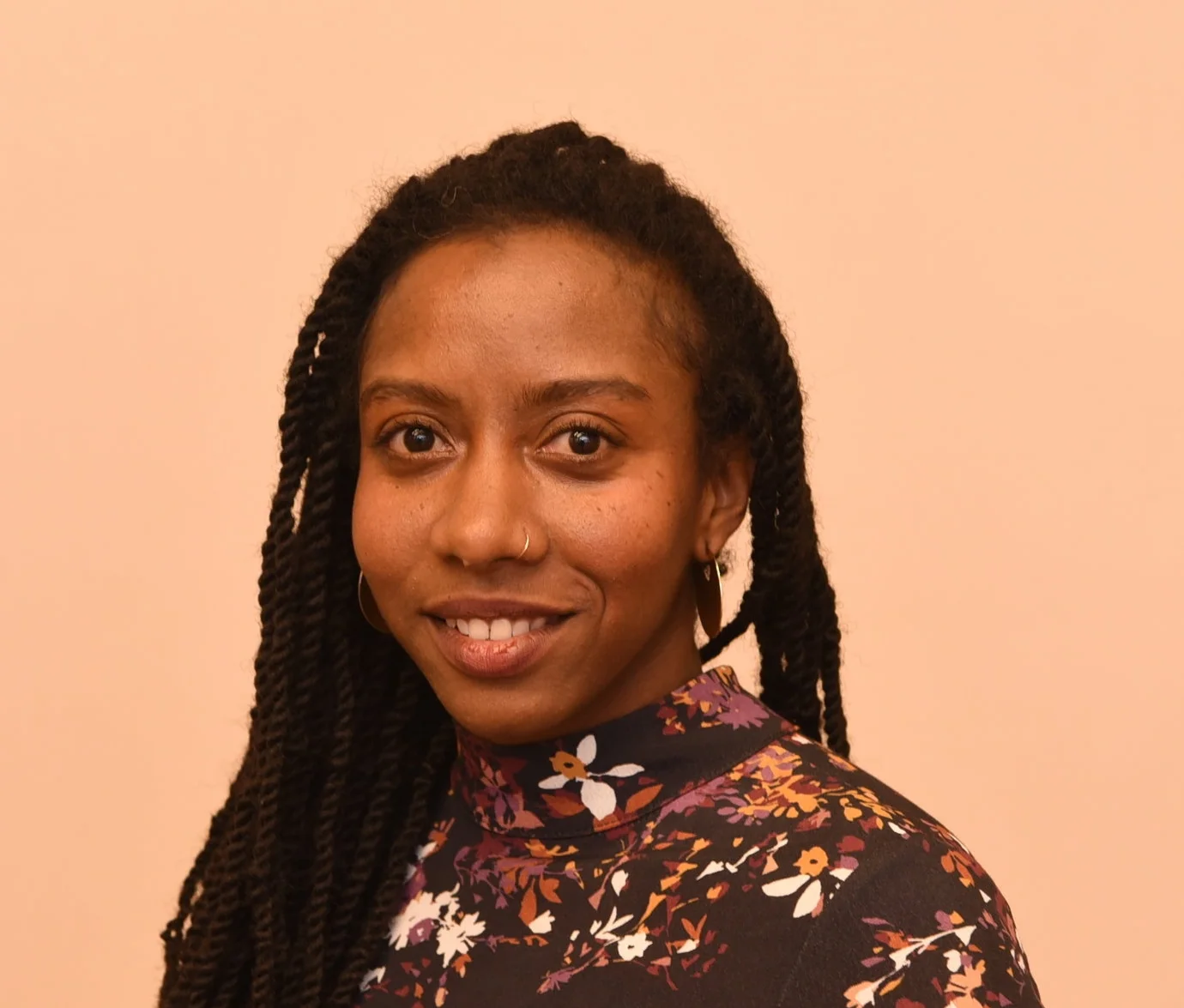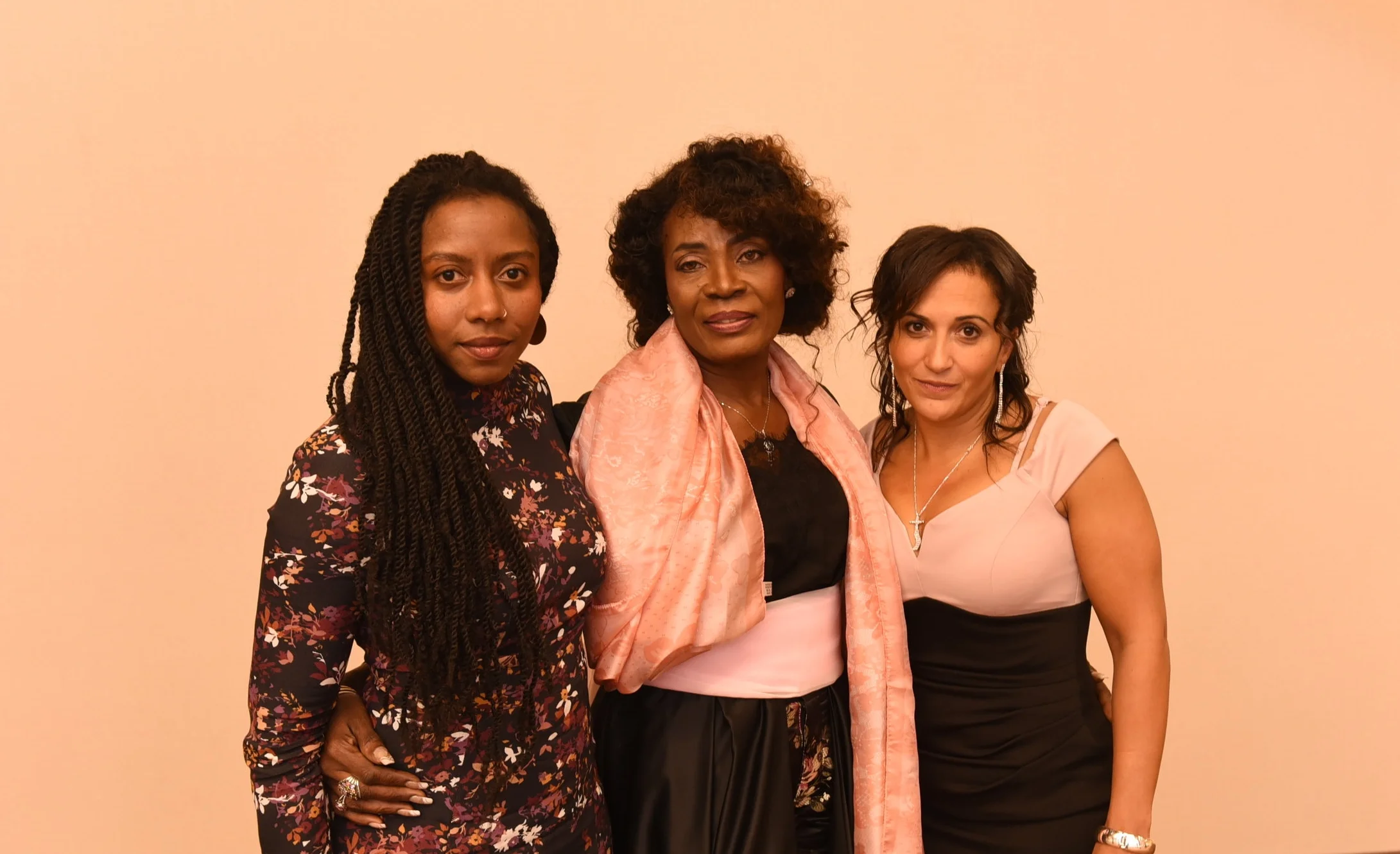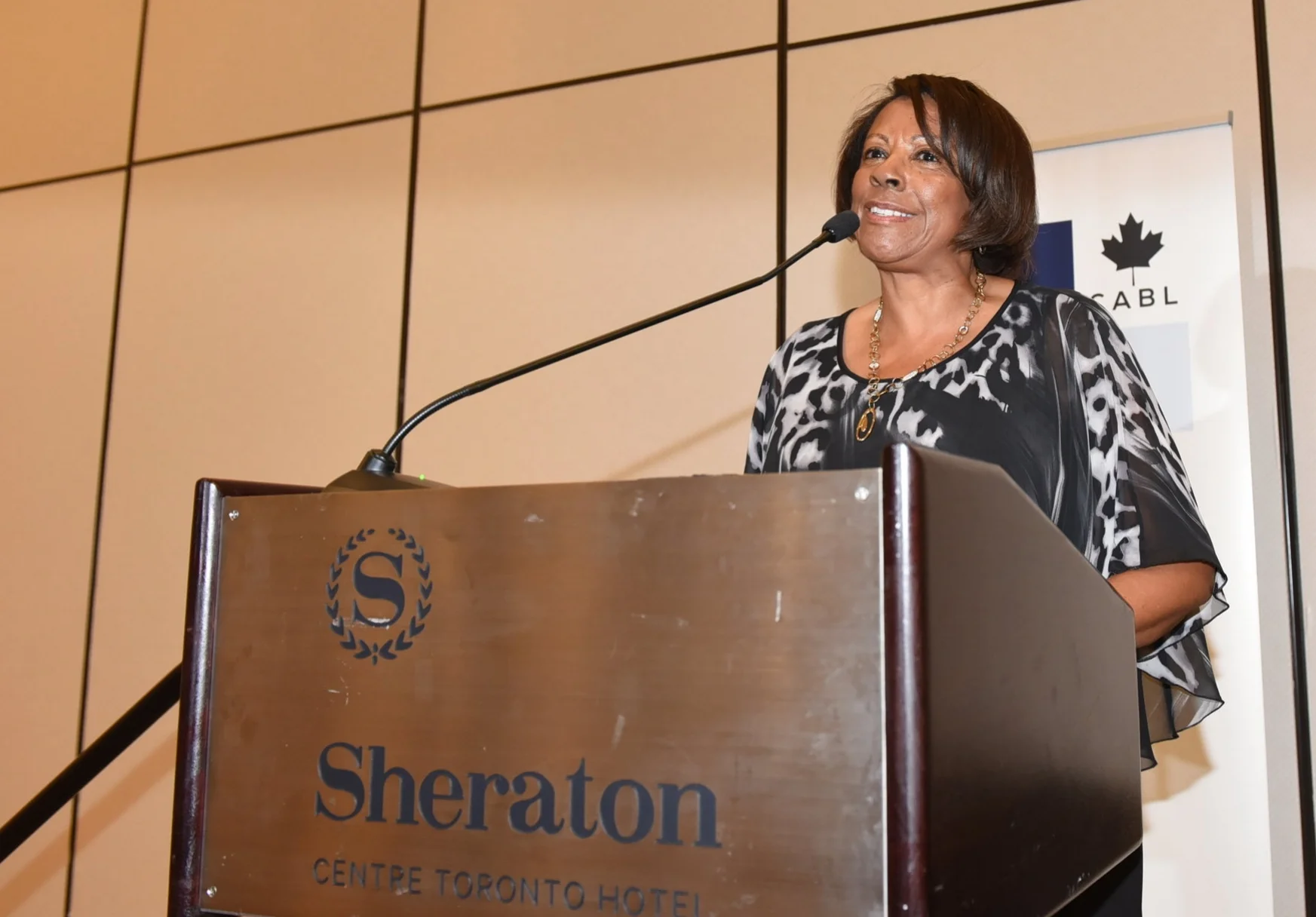Young lawyer honoured to be her father's daughter
November 12, 2018
Hadiya Roderique made headlines a year ago when she penned an essay in the Globe & Mail describing the barriers and isolation she faced as a Black woman interviewing for Bay St. firms and working for one of them.
After 26 months as an associate at Fasken Martineau Du Moulin where she represented private and public sector employers in all aspects of labour, employment and human rights law, and five months at Rubin Thomlinson LLP – a boutique firm -- providing employer and employee clients with practical and tailored solutions to employment and human rights problems, Roderique left private practice in September 2012 to pursue a Ph.D. in organizational behaviour & human resources management at the University of Toronto’s Rotman School of Management.
She graduates next year.
In the last two months, Roderique was bestowed with prestigious honours, the most recent being the Young Lawyer Award presented at the Canadian Association of Black Lawyers (CABL) 22nd annual gala on October 20.
“While I felt lonely on Bay St., I never felt that way at a CABL event”, said the former CABL treasurer who has completed journalism fellowships at The Walrus and the National Post.
Though far too many fathers are absent in their children’s lives, that wasn’t the case with Roderique who never misses a moment to lavish praise on Joseph Roderique who, with his wife Judith, emigrated from Grenada.
The former high school teacher has been driving a cab in the Greater Toronto Area for the last three decades even though he’s a university graduate.
Describing her dad as ‘one of the most gifted teachers I have ever met in my entire life’, Roderique said his talent has been wasted because of bias.
“My Black female excellence couldn’t have been possible without the support of my excellent Black father,” she pointed out. “It was he who cussed out my junior kindergarten teacher when she told my parents I might be mentally challenged. It was my Black father who asked, ‘Where is the other five per cent when I brought home a 95 per cent grade? It was my Black father who would do extra shifts so that I could pay for a few more law school applications. When that essay was published, he stood beside a newsstand and asked every passerby, ‘Do you read the Globe & Mail’? (Pointing to the paper), he said, ‘I think you should because this is my daughter’. I am honoured to be my father’s daughter and to receive this award.”
In August, Roderique made the Canadian Lawyer Magazine Top 25 Most Influential winner list in the Changemaker category.
It was evident two decades ago that she was a star on the horizon.
In a three-week span in 1988, Roderique won three of the Black community leading scholarships -- the Black Business & Professional Association, the United Achievers Club of Brampton and the defunct Harry Gairey awards.
“My dad constantly stressed the importance of education,” she said. “He was also active in parent-teacher meetings and he ensured I was taking the right classes and applying to the right schools.”
Roderique, who co-hosts the Canadaland Commons podcast where she discusses contemporary Canadian political issues, maintained a 91 per cent average while successfully participating in extracurricular activities.
An accomplished 80-metre hurdler and long and triple jumper, she represented Cawthra Park Secondary School in Mississauga at three Ontario Federation of Schools Athletic Association (OFSAA) championships and was a member of the wrestling team that took part in two OFSAA tournaments and her school’s dance program.
The Ultimate Frisbee player also represented Canada at seven world championships.
Graduating with honours in 2003 from McGill University with a degree in psychology & humanistic studies and U of T five years later with a Master’s in criminology and law degree after winning the award for the highest standing in the dual program, she joined Fasken Martineau DuMoulin as an articling student before becoming an associate lawyer in September 2009.
The year’s gala celebrated Black female excellence in the legal profession,
Patricia DeGuire, who co-founded the CABL with Sandy Thomas and Roger Rowe, was recognized with the Mentorship Award.
“I have many passions, two of which are stewardship and justice,” said DeGuire who graduated from Osgoode Hall law school in 1991 and received her Master of Laws in constitutional law eight years later under the tutelage of legal scholar Peter Hogg whose textbook, ‘Constitutional Law of Canada’, is a bestseller on law school campuses every fall. “An integral part of stewardship is mentorship which is not something I chose. I think that mentorship is the single most impactful way to achieve our goals towards inclusion and diversity.”
Angela Simmonds, who received her law degree last year, was honoured with a Pathfinder Award for her commitment to enhance inclusion, equity and access for racialized people and marginalized communities.
CABL award winners Hadiya Roderique (l), Patricia DeGuire & Angela Simmonds
In 2014, the Nova Scotia Barristers’ Society hired Simmonds for a community-based research project focussed on North and East Preston residents’ concerns that their land was being expropriated by the City of Halifax.
Nearly 250 years ago, the Crown promised freedom, land, and supplies to Black Loyalists in exchange for fighting on behalf of the British during the American Revolutionary War. At the end of the 18th century, the Jamaican Maroons and the Black settlers following the War of 1812, were offered similar promises.
They, however, received rocky unfertile land that, in most instances, no one else wanted and were given access to the land, but not legal ownership of it. In spite of monumental challenges, residents have built a strong community on the land for over two centuries. They have paid taxes on the land. But without legal ownership, residents today are in the same situation their ancestors were in centuries ago as they can’t legally pass on properties to their families, which means land could be taken away and sold by the government.
As a result of her research, Simmonds wrote a report titled, ‘This Land Is Our Land: African Nova Scotian Voices from the Preston Area Speak Up’. Her work on the complicated issue of land titles with the North Preston Land Recovery Initiative is featured in the Nova Scotia Community College investigative journalism project, ‘Untitled: The Legacy of Land in North Preston’. The documentary won awards from Amnesty International Canada and the Canadian Association of Journalists, and the issue has garnered national media coverage and international attention from the United Nations.
“I want to thank the families and community members who trusted me to tell their stories at a time when they were dealing with frustrations about the structural and institutional anti-Black racism in preventing ownership of their land and homes,” she said. “Community members face and continue to face barriers beyond their control based upon the structures of our society. I would not have been able to address this historical injustice if not for the many lawyers and volunteers who worked on this with me. I am extremely grateful to the Nova Scotia Community College journalism students who brought this life of so many stories to reality and ensured it gained the national attention it deserved. It stimulated a much needed and deeper conversation within this country.”
This year’s event featured a roundtable discussion with Member of Parliament Celina Caesar-Chavannes and Black Legal Action Centre executive director Ruth Goba who was an Ontario Human Rights Commission commissioner for 11 years.
The CABL has been quite active in the last year.
They met with the Ontario government to address anti-Black racism in the provincial public service and collaborated with Ontario Court of Appeal judges to address issues of equity, diversity and inclusion.
“We continue to make great strides fulfilling our overall mandate to promote the advancement of Black lawyers within the profession by providing support systems, promoting academic and professional excellence and advancing issues of equity and diversity among the bar and judiciary,” added CABL president Shawn Richard who is an associate at Lenkinski Law.
Next year’s CABL gala will be held in Halifax, Nova Scotia on October 19. It’s the first time that the event will take place outside Toronto.







